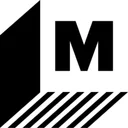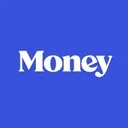What Is a Certified Check? Definition, Cost, Use and How to Buy One
A certified check is a safe payment option available at banks and credit unions.

Many, or all, of the products featured on this page are from our advertising partners who compensate us when you take certain actions on our website or click to take an action on their website. However, this does not influence our evaluations. Our opinions are our own. Here is a list of our partners and here's how we make money.
Certified check definition
A certified check is a personal check guaranteed by the check writer’s bank. The bank verifies the account holder’s signature and that they have enough money to pay a specified amount, then sets aside the check amount for when it’s cashed or deposited.
» Skip to: Fees for certified checks by bank
Why use a certified check?
Sometimes, especially with larger transactions, it can be impractical for buyers to pay with cash, and sellers might be reluctant to accept a personal check, in case it bounces or is fraudulent. A certified check can reduce risks for everyone in such a transaction.
"The whole purpose of a certified check is to ensure the person who’s getting paid that there’s money behind the check," said Nessa Feddis, senior vice president at the American Bankers Association.
"If I’m selling my car and I’m handing it over, and if they give me a personal check, that check may come back as uncollectible and I can’t get the car back."
» MORE: Can I cash a check at any bank?
Certified check vs. cashier’s check
Both certified and cashier's checks can be considered “official checks,” which is what some banks and credit unions call them. Both are used instead of cash, credit or personal checks, and both are used to guarantee payment. It’s difficult to replace these types of checks; for a lost cashier’s or certified check, you’ll have to get an indemnity bond, which you can get through an insurance company but it can be challenging. And your bank might require you to wait up to 90 days to get a replacement check.
The difference between a cashier’s check and a certified check is that with a cashier's check, the bank receives money from the purchaser, then issues the check and guarantees its payment at face value. Funds for a cashier’s check are drawn against the bank, whereas with a certified check, funds are drawn against a personal account.
» Interested in alternatives? Read up on money orders or cashier's checks
How to guard against certified check fraud
Like any other form of payment, cashier’s checks and certified checks are vulnerable to fraud, and it’s your responsibility to make sure the check you receive is legitimate and not counterfeit.
Some red flags of phony checks — such as typos and grammatical errors — are easy to spot, but most bad checks don't have dead giveaways. With technology, counterfeiters can easily copy bank logos and branding off the internet.
Banking security experts recommend that you call the bank immediately upon receiving a certified check to verify it. Don’t call the number printed on the check, though; it could be phony, too.
To verify the check is valid, find the bank's phone number from the bank’s official website, call it, then give the bank the check number and the name of the purchaser.
You can be held responsible for a bad check
Under banking regulations, deposited funds typically are available as soon as the next business day. But if you happen to deposit a cashier’s check, withdraw the funds and send out the money (or merchandise, if you sold something), only to have the bank discover that the check was fraudulent, you may be held responsible for the entire amount of the bad check.
Fees for certified and cashier’s checks
Many banks and credit unions offer certified checks and cashier's checks, though not all offer both, and some differ on terminology, calling them "official checks." Fees can be $15 or higher. Some financial institutions, however, offer reduced fees or no fees for account holders.
Here’s a look at the cost of certified checks and cashier’s checks at some major financial institutions. If your bank or credit union isn’t listed, contact it directly to ask about availability.
Bank | Details |
|---|---|
Cashier's checks are free. | |
Cashier’s checks: $15 for certain account holders, free for Preferred Rewards program customers. | |
Cashier’s checks for 360 Checking customers: $20 online with overnight shipping; $10 in branch. | |
Cashier’s checks: $10 per check for certain account holders; free for Secure, Premier Plus, Private Client Checking℠ and Sapphire Checking account holders. | |
Official checks: Free for customers. | |
Cashier’s checks: Two free per member per day, $5 for each additional check. | |
Official checks: Free. | |
Cashier’s checks: Free for Performance Select Checking and Foundation Checking accounts, $5 for Performance Checking accounts, $10 for all other accounts. | |
Official checks: $10; fee waived for some accounts and once per statement cycle for some other accounts. | |
Cashier's checks: $10. Fee is waived for military customers. | |
Cashier’s checks: $10 plus $8 delivery charge for online orders; $10 in person. |
Because the face value is guaranteed, legitimate certified checks are as good as cash. This can help ease your mind when exchanging goods or services in a large transaction. But as with any situation involving money, be careful to avoid falling victim to counterfeiters.






